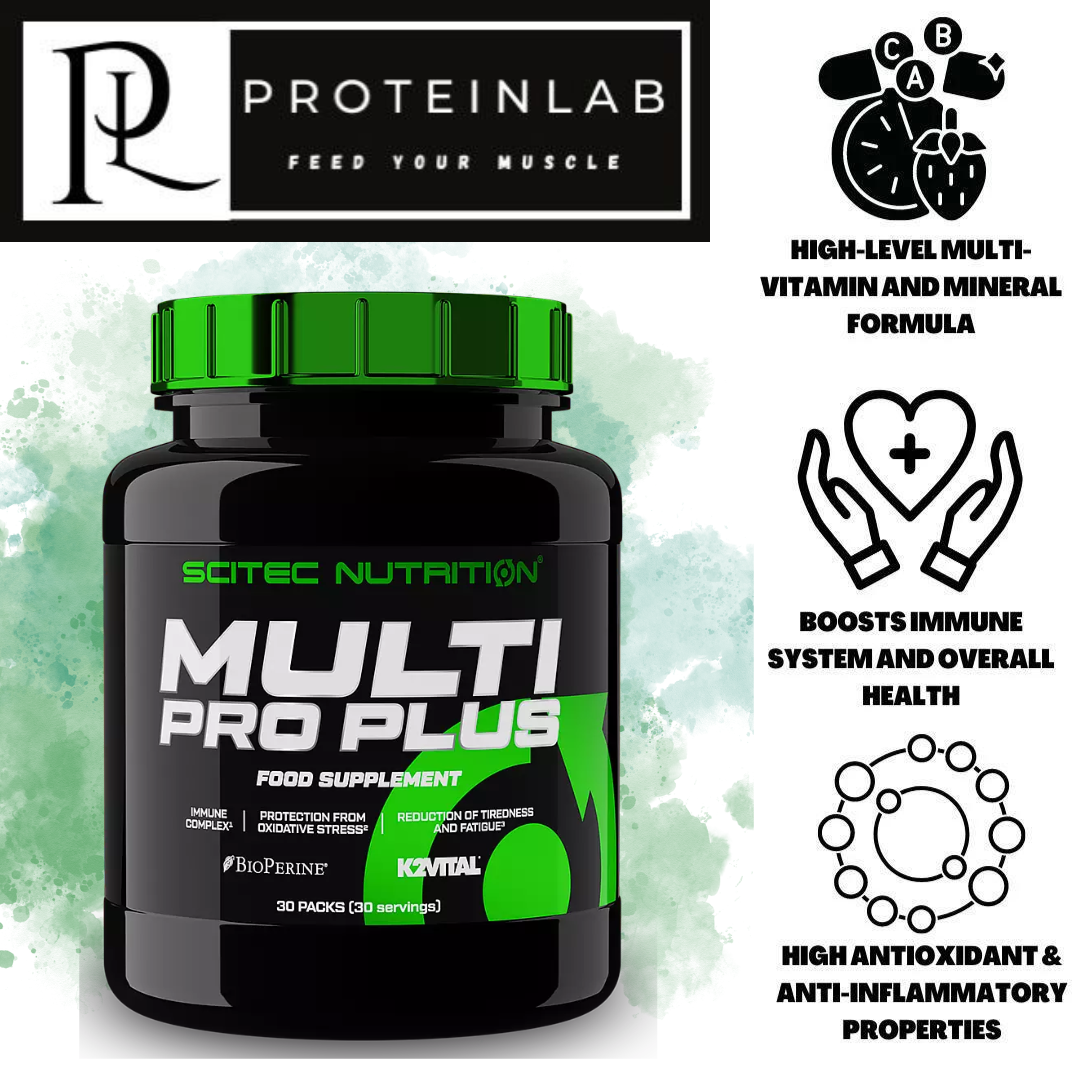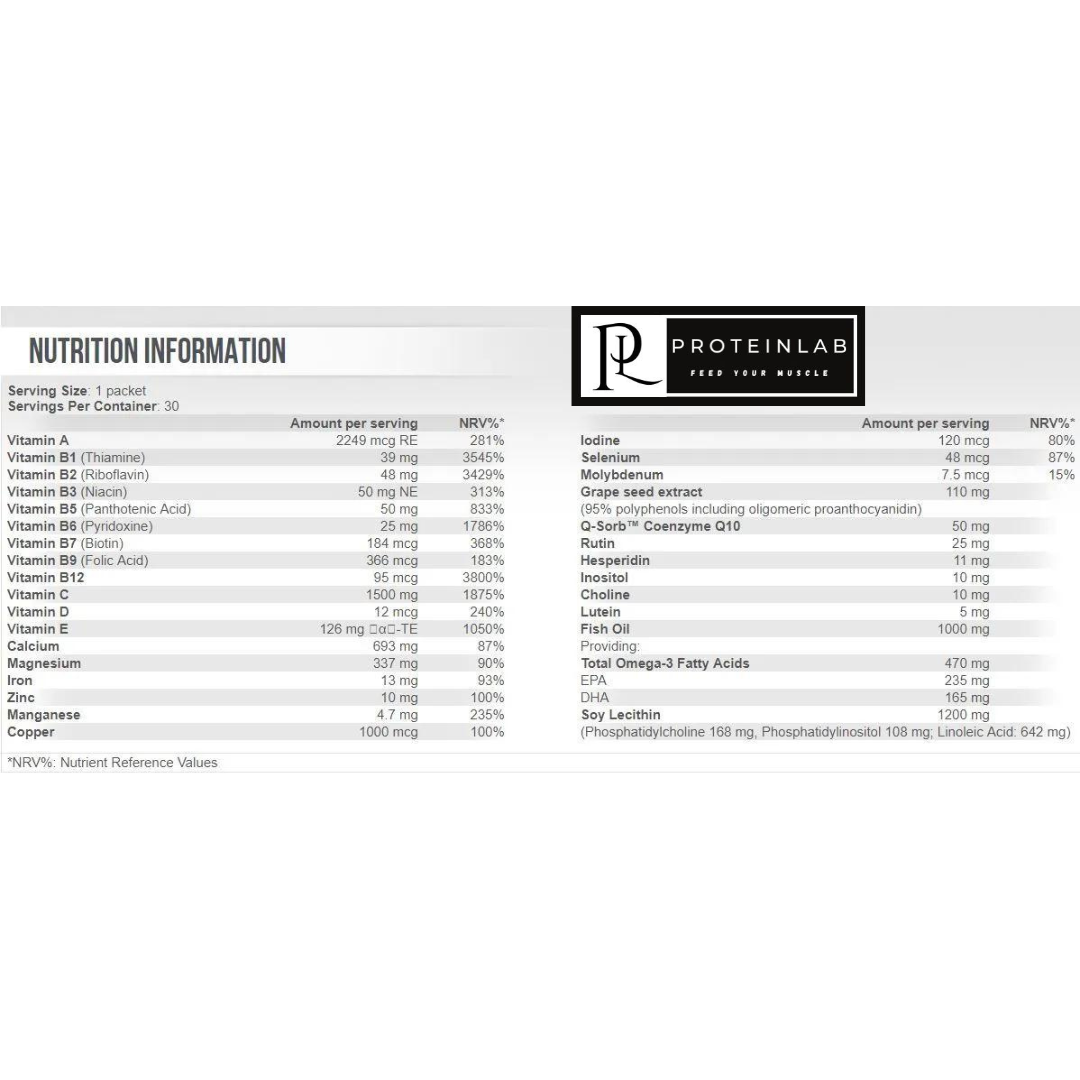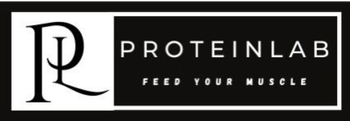Scitec Nutrition MultiPro Plus (30 pills)
ProteinLab Sports Supplement Supplier / Wholesaler Malaysia presents!
Scitec Nutrition MultiPro Plus (30 Pills)

JAMES ELLIS
Fitness Cover Model, WBFF World Champion
Team Scitec
- A wide variety of selected ingredients
- No need to take other vitamin supplements
- Omega-3’s, lecithin and coenzyme q10
- With lutein and grape seed extract
Proteinlab Malaysia brings you Scitec Nutrition multi-pro plus which is a high-level multi-vitamin and mineral formula in a packet of several capsules and tablets/capsules that are based on Scitec Nutrition MEGA DAILY ONE PLUS multi-vitamin caps.
MEGA DAILY ONE PLUS
It is Scitec Nutrition's advanced multi-vitamin and mineral formula that has 25 ingredients itself!
Scitec Multi-Pro Plus features a high-dose Vitamin B complex and Vitamin C, plus essential minerals including Magnesium, Selenium, and Zinc.
One of the key ingredients of Scitec Multi-pro Plus is its high Vitamin C contents (1500MG / 1875% of NRV) which contribute to the normal function of the immune and nervous systems, and to the reduction of tiredness and fatigue. It also helps to maintain the normal function of the immune system during and after intense exercise (the beneficial effect is obtained with a daily intake of 200 mg in addition to the recommended daily intake of Vitamin C)! In a modern-day lifestyle in Malaysia, we are filled with stress and free radicals from all the toxins and chemicals found in our air and food. Vitamin C has become an important part of needed nutrition in our lives.
To top it off:
MULTI PRO PLUS has 240% of the Nutrient Reference Value of Vitamin D3! Vitamin D contributes to the maintenance of normal muscle and immune system function, and to the normal absorption/utilization of calcium and phosphorus. Vitamin D3 is extremely important nutrition for fitness lovers and bodybuilders alike. Along with Zinc which contributes to normal fertility, reproduction, and the maintenance of normal testosterone levels in the blood, and also to normal macronutrient metabolism.
There is also Magnesium which contributes to the normal functioning of the nervous system: neurotransmission and muscle contraction including heart muscle; also to normal protein synthesis and to the maintenance of normal bones and teeth.
Other than just providing vitamins and minerals, Scitec Nutrition Multipro Plus additionally has an Omega-3 and Lecithin soft gel, Co Q10, Polyphenol Grape Seed extract, and it’s fortified with Lutein as well!
*These statements have been scientifically proven by the European Food Safety Authority (EFSA) and authorized by the European Commission (EC)
Moreover, Scitec Nutrition Multipro is used by Proteinlab and Life Health Lab founder personally Kevinn Khoo.

MICHELLE BRANNAN
IFBB British Grand Prix 1st place, IFBB Nordic Pro 2nd place
Team Scitec
Directions
Take 1 packet a day, preferably with a meal.
Allergen info
Manufactured in a facility that processes milk, egg, gluten, soy, peanuts, nuts, celery, fish, and crustacean ingredients.
Warnings
Keep out of the reach of children! Don’t exceed the recommended daily dosage! Use this product in conjunction with food as part of a healthy, balanced diet, not as a substitute for such.
Size
30 packets - 30 doses
Heck! Rather than just get Multivitamins for which you do not know the purpose or function for. Our Proteinlab Malaysia Team decided to break it down everything for you piece by piece:
Scitec Multipro ingredients

1. Boosts Immunity
Scitec Nutrition Multi Pro Plus contains a high level of essential nutrients:
- Vitamin A, B12, D, and Iron: Contributes to normal immune function.
- Vitamin A: It contributes to maintaining healthy skin and mucous membranes.
- Zinc and Selenium: Protect cells from oxidative stress and improve the immune system.
2. Anti-fatigue and Energy Booster
One needs constant energy to deal with daily issues. This supplement will reduce fatigue due to the presence of the following nutrients:
Vitamin B9 (Folate), B5 (Pantothenic Acid), B6, B12, and Iron: Supports energy metabolism, reduces fatigue.
- Biotin and Pantothenic Acid: Contribute to the production of energy for best possible performance.
3. Contributes to Nervous System Function
Mental fitness is as important as a healthy body. Scitec Nutrition Multi Pro Plus includes:
- Thiamine, Niacin, and Iodine: for normal functioning of nervous system.
- Magnesium Chelate: Reduces stress and promotes muscle relaxation, thus promoting overall mental clarity.
4. Bone and Joint Health
This formula is supplemented with:
- Vitamin K2VITAL® K2 and Calcium Complex: To promote bone density and strength.
- Vitamin D and Magnesium Bisglycinate: To facilitate calcium absorption and joint health.
5. Blood Sugar Levels and Metabolism
To promote a healthy lifestyle, the formula contains:
- Chromium: It takes part in macronutrient metabolism and maintains blood sugar levels in the normal range.

Be safe and rest assured you are getting 100% authentic products at the lowest price when you purchase from ProteinLab Malaysia.
You can also like our Facebook for more promotion news at :
Or you can also follow Instagram for more nutrition tips:


